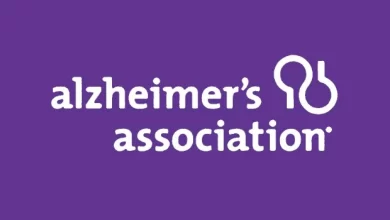Participants sought for clinical study on investigational smoking cessation therapy

Rochester Clinical Research is enrolling eligible volunteers into ORCA-2 (NCT04576949), a U.S. Phase 3 clinical research study evaluating the safety and efficacy of cytisinicline, an investigational therapy for smoking cessation.
Despite the clearly defined health risks associated with cigarette smoking, nearly 14 percent of adults in the United States aged 18 years or older smoked cigarettes in 2018, and it is estimated that there are 34 million adults who are current cigarette smokers. Prescription medication and counseling have been shown to improve quit rates yet are used by a minority of those trying to quit. Among the 68 percent of smokers who want to quit, less than seven percent reported using counseling and only 29 percent reported using pharmacotherapy, and less than five percent used both.
Cytisinicline is a plant-based, naturally-occurring compound that is structurally similar to nicotine and is believed to aid in smoking cessation by binding more specifically to a certain nicotinic receptor in the brain. This binding partially stimulates dopamine release, which reduces nicotine cravings and the severity of nicotine withdrawal symptoms. It also directly inhibits nicotine binding, reducing the satisfaction typically associated with smoking. Recently a study evaluating the first head-to-head comparison of cytisinicline to CHANTIX® (varenicline) achieved its primary endpoint and showed that cytisinicline plus behavioral support was as effective as varenicline. The trial also showed that cytisinicline resulted in significantly fewer reported adverse events compared with varenicline.
“The FDA-approved non-nicotine-containing smoking cessation therapies, varenicline, and bupropion, can improve rates of smoking cessation, but they are associated with troublesome side effects, and additional treatment options are needed if we are to help more people successfully quit smoking and reduce their smoking-related health risks,” said Matthew Davis, MD, Medical Director at Rochester Clinical Research and investigator on ORCA-2 Study. “While the benefits of quitting cigarette smoking are well understood in both the medical and consumer communities, the COVID-19 pandemic has once again underscored the significant health risks that smokers face. This year, more than ever, we encourage cigarette smokers to make quitting a resolution for 2021 and to speak with their health care providers about options that can help them succeed, including potential clinical trial participation when appropriate. As a leading provider of high quality clinical research studies to help develop safe, advanced medical options in an ethical manner, Rochester Clinical Research is proud to offer those in our community who wish to quit cigarette smoking the opportunity to participate in the ORCA-2 study.”
ORCA-2 is being conducted to learn more about the effectiveness and safety of 3.0 mg cytisinicline in combination with behavioral support in people trying to quit cigarette smoking. In this study, researchers want to find out if cytisinicline with behavioral support can increase the probability of abstaining from cigarette smoking from Week 3 to Week 6 and from Week 9 to Week 12 of treatment compared with placebo. The study will also assess the safety profile of 3.0 mg cytisinicline compared with placebo and compare the safety profiles of 3.0 cytisinicline for six weeks followed by six weeks of placebo, and for 12 weeks.
Rochester Clinical Research is one of 15 U.S. clinical sites participating in ORCA-2. The study is open to adults at least 18 years of age who currently smoke an average of at least ten cigarettes per day, intend to quit smoking, and have failed at least one previous attempt to stop smoking with or without therapeutic support. Participants must be willing to set a quit date within five to seven days of starting treatment and be willing to actively participate in the study’s smoking cessation behavioral support provided throughout the study. All randomized subjects will initiate study treatment the day after randomization, receive 12 weeks of treatment, and will then be followed for up to 24 weeks post-randomization. Randomized subjects will be assessed for smoking cessation by self-report of abstinence with biochemical verification documented weekly starting at Week 2 through Week 12. Additional follow-up assessments will occur at Week 16, 20, and 24 to evaluate long-term continuous abstinence. Subjects participating in the study will receive study medication and study-related care at no cost and will be reimbursed for study-related travel expenses.
An independent Institutional Review Board has also approved the study for enrollment.
If you or someone you know is interested in joining the study, call 585-288-0890 or visit https://www.rcrclinical.com/clinical-trial/quit-smoking-study/.
Provided information




